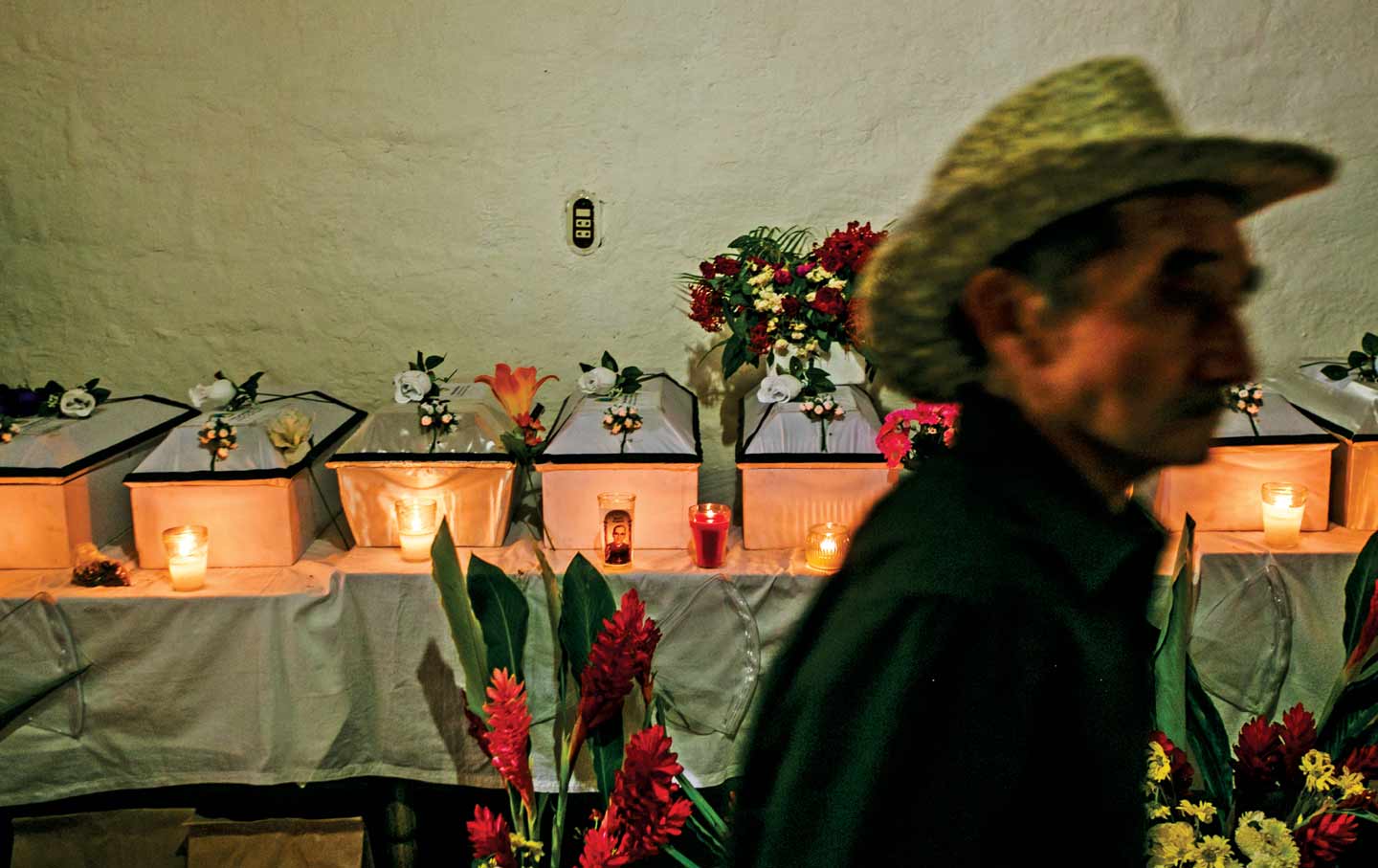NOTHING STAYS BURIED
to be published by Spiegel & Grau

El Mozote was a ghost town. When villagers began returning in 1992, at the end of El Salvador’s civil war, skeletons protruded from the soil. Weeds enshrouded ruins. The church was rubble, the fields fallow, and the school caved in by a bomb. Over the course of three days in December 1981, Salvadoran soldiers trained and armed by the United States had machine-gunned, machete-slashed, bayoneted, and burned to death more than 800 civilians in El Mozote and surrounding villages as part of a scorched-earth operation to root out leftist guerillas. The survivors had spent a decade in caves and refugee camps. Now they were coming back.
When I started reporting in El Mozote in 2013, the summer before my senior year of college, I wanted to understand what happens over time to people and places that have been through massive social upheaval. Eventually I came to see the village as a microcosm for post-war El Salvador. In addition to the trauma that still lingers from the massacre and the daily stress of living atop the bones of their murdered ancestors, El Mozote residents were dealing with the same problems as the rest of the country. Poverty was pushing the post-war generation to the U.S. and depriving the village of new leadership. The arrival of gangs brought new fears and bloodshed. El Mozote, like El Salvador, had never fully put itself back together after the war, making these challenges feel insurmountable.
A decade after that first visit, I am working on a book about El Mozote for Spiegel & Grau. It tells the story of the village in the decades after the massacre, tracing the lives of a small cast of characters against the backdrop of post-war El Salvador. Much of the story takes place over the past decade, as El Mozote is thrust into a reckoning and so is the country as a whole. In 2015, the government unexpectedly launched new exhumations, the first since an amnesty law was passed in 1993. The following year, the supreme court overturned the amnesty and a judge filed charges against sixteen former army officials accused of planning the massacre. Now, the country is living through a new layer of trauma: the arbitrary arrests of tens of thousands of people as part of authoritarian-populist president Nayib Bukele’s crackdown on gangs.
NOTHING STAYS BURIED (working title) has received support from New America, the Logan Nonfiction Writing Residency, and Yale University’s Parker Huang Undergraduate Travel Fellowship. It is the product of hundreds of interviews, months of fly-on-the-wall reporting, and years of research on collective trauma, the limits of truth and reconciliation, gang violence, immigration, and U.S. policy in Latin America. I hope that the book will deepen our understanding of the long-term repercussions of atrocities like the El Mozote massacre and, more broadly, of U.S. intervention. At the same time, it is a human story that asks universal questions: what scars does trauma leave on people and communities? How do we carry on?